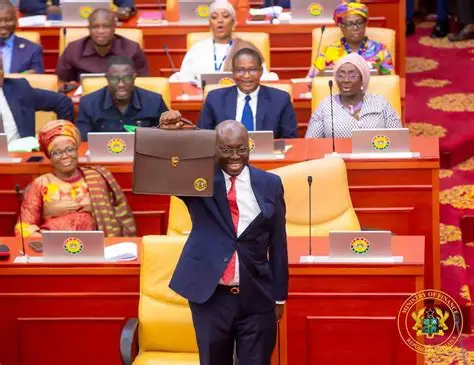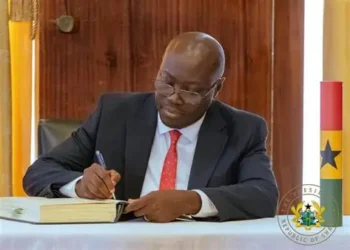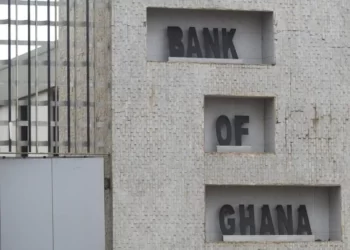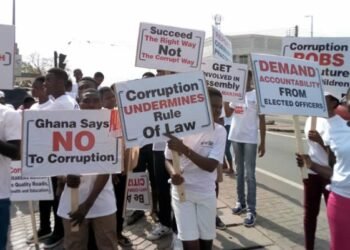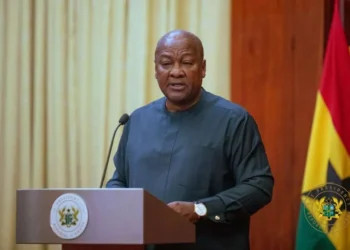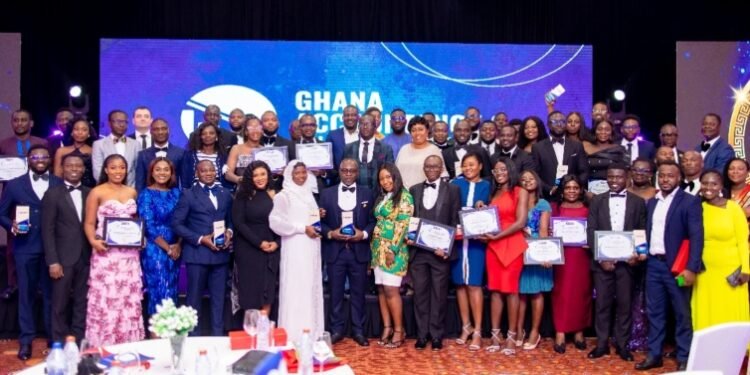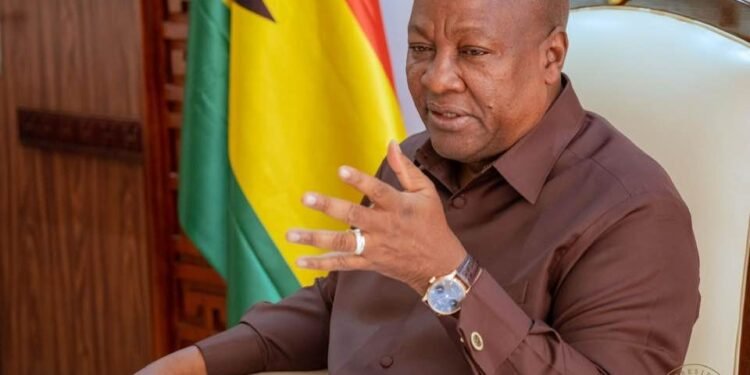Ghana’s 2026 Budget, to be presented to Parliament on November 13, 2025 by Finance Minister Dr. Cassiel Ato Forson, will not just be another fiscal statement; it will be a referendum on Ghana’s economic independence.
After nearly three years under the International Monetary Fund’s (IMF) $3 billion Extended Credit Facility, the West African nation faces a critical question: can it maintain macroeconomic discipline without the IMF’s guiding hand, or will it relapse into the familiar cycle of over-borrowing, overspending, and under-performing?
Few budgets in Ghana’s Fourth Republic have carried as much economic weight as this one. The economy, once teetering on the brink of default, has shown tentative signs of recovery. Inflation, which soared above 54% in early 2023, has eased to around 8% by October 2025, and the cedi, battered for years, has stabilized within the GHS 10–11 per dollar range
These gains, however, remain fragile and largely anchored to the IMF’s strict fiscal targets. Ghana’s success in meeting its primary balance and debt service obligations has earned praise from creditors, culminating in a $2.8 billion debt-relief deal with official lenders in mid-2025. Yet the real test begins now — as the IMF is prepared to step back in 2026 and the government takes ownership of its fiscal destiny.
“2026 will be the year Ghana graduates from externally supervised stabilization to domestically driven credibility,” says economist Dr. Patrick Asuming of the University of Ghana. “The budget must show that fiscal consolidation is no longer an IMF condition — it’s now a national conviction.”
VAT Reform: The Centrepiece of Fiscal Renewal
At the heart of the 2026 Budget is a bold attempt to overhaul Ghana’s value-added tax (VAT) regime, long viewed as both inefficient and regressive.
Despite a headline VAT rate among the highest in West Africa, Ghana’s actual VAT revenue-to-GDP ratio lingers below 6%, well under the regional average. Economists describe it as “a high-rate, low-yield” system riddled with exemptions, cascading levies, and cumbersome refund procedures that deter compliance.
Businesses complain that the system punishes productivity. “By the time you add GETFund, NHIL, and COVID-19 levies, the effective VAT rate exceeds 21%,” says a manufacturing association spokesperson. “It’s one of the biggest cost burdens on local firms — and a disincentive to formalization.”
The upcoming reforms are expected to simplify the VAT structure, reduce the number of cascading levies, and raise the registration threshold to exempt micro enterprises. The government also plans to automate VAT refunds through e-invoicing and integrate the system with the Ghana Revenue Authority’s (GRA) digital compliance tools.

According to Ministry of Finance insiders, the reforms aim to broaden the tax base while making the system “simpler, fairer, and more predictable.”
If successfully implemented, the changes could raise an additional 1.5–2 percent of GDP in annual revenue, roughly GHS 20 billion without raising rates.
The Revenue Problem Behind the Reforms
Ghana’s fiscal challenge is structural, not merely cyclical. Tax revenues, at just under 14% of GDP, remain among the lowest in sub-Saharan Africa. Yet the expenditure pressures, particularly from wages, interest payments, and energy sector losses, remain among the highest.
The result is a persistent “fiscal scissors” effect: slow-growing revenue meets fast-rising spending. In 2024 alone, interest payments consumed 43% of total government revenue, crowding out critical investments in infrastructure and health.
The IMF programme has forced some discipline, limiting fiscal deficits to 3.9% of GDP and freezing net hiring in the public sector. But those measures are politically costly. With elections looming in 2028, analysts warn that the government must resist populist spending.
The temptation to relax fiscal rules before elections is real, says financial analyst. But one bout of overspending could erase two years of painful stabilization.
Beyond the IMF: Building Fiscal Sovereignty
The question, then, is not whether Ghana can survive without the IMF, but whether it can institutionalize the discipline the Fund demands.
The Fiscal Responsibility Act, first introduced in 2018 but weakly enforced, is expected to return in strengthened form, granting the Fiscal Council sharper oversight powers. The Treasury Single Account, GIFMIS, and e-procurement systems will also feature prominently in the 2026 budget rollout, aiming to close leakages and improve cash management.
Yet, fiscal sovereignty is more than technical fixes. It is about restoring public trust. The public wants to see evidence that sacrifices, such as higher taxes and spending restraint translate into tangible growth, jobs, and improved infrastructure.
That trust has been eroded by the opacity of state-owned enterprises (SOEs). The Electricity Company of Ghana (ECG) and COCOBOD continue to generate losses that spill into the national budget. The government has hinted at partial private-sector participation and stricter financial reporting as part of the 2026 reform package.
“If ECG and COCOBOD keep draining the budget, no VAT reform will save us,” one senior official at the Finance Ministry admitted. “Fiscal discipline must extend to the state enterprises that operate like parallel governments.”
The Growth Paradox
Even as fiscal numbers stabilize, the real economy remains under pressure. Ghana’s growth, projected at 4.3% in 2025, is driven largely by services and extractives — not manufacturing or high-value exports.
Structural transformation has been disappointing. According to World Bank data, 87% of Ghana’s productivity gains come from within sectors, not from labour shifting into more productive industries. In essence, the economy is modernizing without industrializing.
The 2026 Budget is expected to prioritize manufacturing incentives, green industrial parks, and credit support for SMEs, aligning with the African Continental Free Trade Area (AfCFTA) opportunities. The World Bank’s 2024 report identified textiles, electronics, and chemicals as sectors with export potential worth over US$3 billion annually, if investment conditions improve.
To that end, the Finance Ministry plans to channel part of the VAT revenue gains toward industrial infrastructure and energy reliability, with a focus on boosting local value chains.
Market Reaction: Confidence or Skepticism?
Financial markets will be watching closely. The Ghana Stock Exchange (GSE) has recovered modestly, with 68.31% year-to-date, while treasury yields have fallen substantially to below 15%. But investors remain cautious.
A report in July 2025 noted that the IMF’s fourth review had “restored policy credibility,” yet warned that Ghana’s gains could evaporate if post-programme fiscal loosening occurs.
As Dr. Forson takes the podium on November 13, he will speak to more than lawmakers. He will be addressing markets, creditors, and Ghana’s citizens who have endured years of austerity.
This is not just about satisfying IMF conditionalities or balancing the books. It is about defining the next decade of Ghana’s economic identity from a bailout-dependent economy to a fiscally sovereign state that raises its own revenues, manages its expenditures responsibly, and invests in productivity, not patronage.

The reforms, especially VAT restructuring, could be a turning point, but only if accompanied by credible implementation and political restraint.
It is no secret that Ghana has walked this path before: post-IMF optimism in 2019 faded quickly into crisis by 2022. The difference this time, analysts insist, must be institutional strength. That is, rules that outlive regimes. “The IMF can help Ghana fix the roof,” says policy economist Bright Simons, “but only Ghana can decide to live under it.”
If the 2026 Budget succeeds, it will mark Ghana’s fiscal graduation; not from debt, but from dependency.
VAT reform, SOE restructuring, and credible expenditure control could raise domestic revenues to 18% of GDP by 2027, placing Ghana on a sustainable fiscal path. If it fails, the gains of the past two years could unravel, forcing yet another cycle of emergency financing and painful adjustment.
The choice, ultimately, lies not in Washington or Accra, but in the political will to turn IMF support into sovereign strength.
READ ALSO:Ghana’s Debt Market Poised for Takeoff as Absa Rallies Corporates to Issue Bonds

